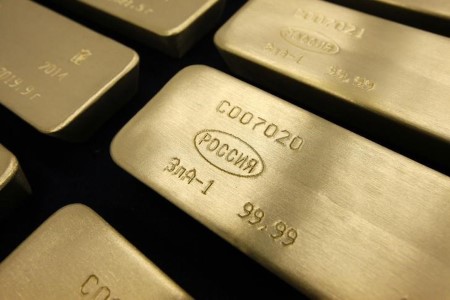




Policy Rate Updates: Closer to BSP’s Goldilocks moment
 DOWNLOAD
DOWNLOAD

Inflation Update: Speeds up but remains below target
 DOWNLOAD
DOWNLOAD

Monthly Economic Update: Fed back on track
 DOWNLOAD
DOWNLOAD


Gold eases but remains on course for quarterly rise

March 31 (Reuters) – Gold prices were on track for a second straight quarterly rise on Friday, as growing bets that the US Federal Reserve will slow the pace of interest rate hikes drew investors to the metal.
Spot gold was down 0.6% at USD 1,968.25 per ounce by 2:26 p.m. EDT (1826 GMT), after prices moved as much as 0.4% higher following data that showed US consumer spending rose modestly in February. US gold futures settled down 0.6% at USD 1,986.2.
“Gold jumped quickly but modestly after the market-friendly PCE (personal consumption expenditures) report,” said Tai Wong, an independent metals trader based in New York.
“Bulls want a very strong close, ideally above USD 2,000, for quarter-end as a springboard to challenge the USD 2,070 all-time record, but the yellow metal looks a little tired.”
The dollar index, while down for the quarter, firmed on Friday, weighing on demand for the greenback-priced gold. USD/
Global stocks gained after the US data, latching onto hopes for a less challenging Fed interest rate regime. Gold, seen as a safe haven, loses value when investors have an appetite for riskier assets.
Last week, gold topped USD 2,000 after the sudden collapse of two US regional lenders drove bets that the US central bank might pause interest rate hikes to stem the risk of contagion in the global banking system.
Prices retreated after authorities initiated rescue measures, though they have gained about 7.8% so far this quarter.
“The mini-banking crisis has seen yields fall considerably and interest rate expectations pared significantly back, which has propelled gold higher,” said Craig Erlam, senior market analyst at OANDA.
Gold consumption in top hub China slowed this week as a steady rise in domestic prices started to bite, forcing dealers to offer discounts for the first time in months.
Spot silver rose 0.4% to USD 23.96 per ounce, platinum added 0.6% at USD 991.77, and palladium was largely unchanged at USD 1,464.77.
(Reporting by Bharat Govind Gautam, Ashitha Shivaprasad and Deep Vakil in Bengaluru; Editing by Jan Harvey, Krishna Chandra Eluri and Shilpi Majumdar)
This article originally appeared on reuters.com





 By Reuters
By Reuters